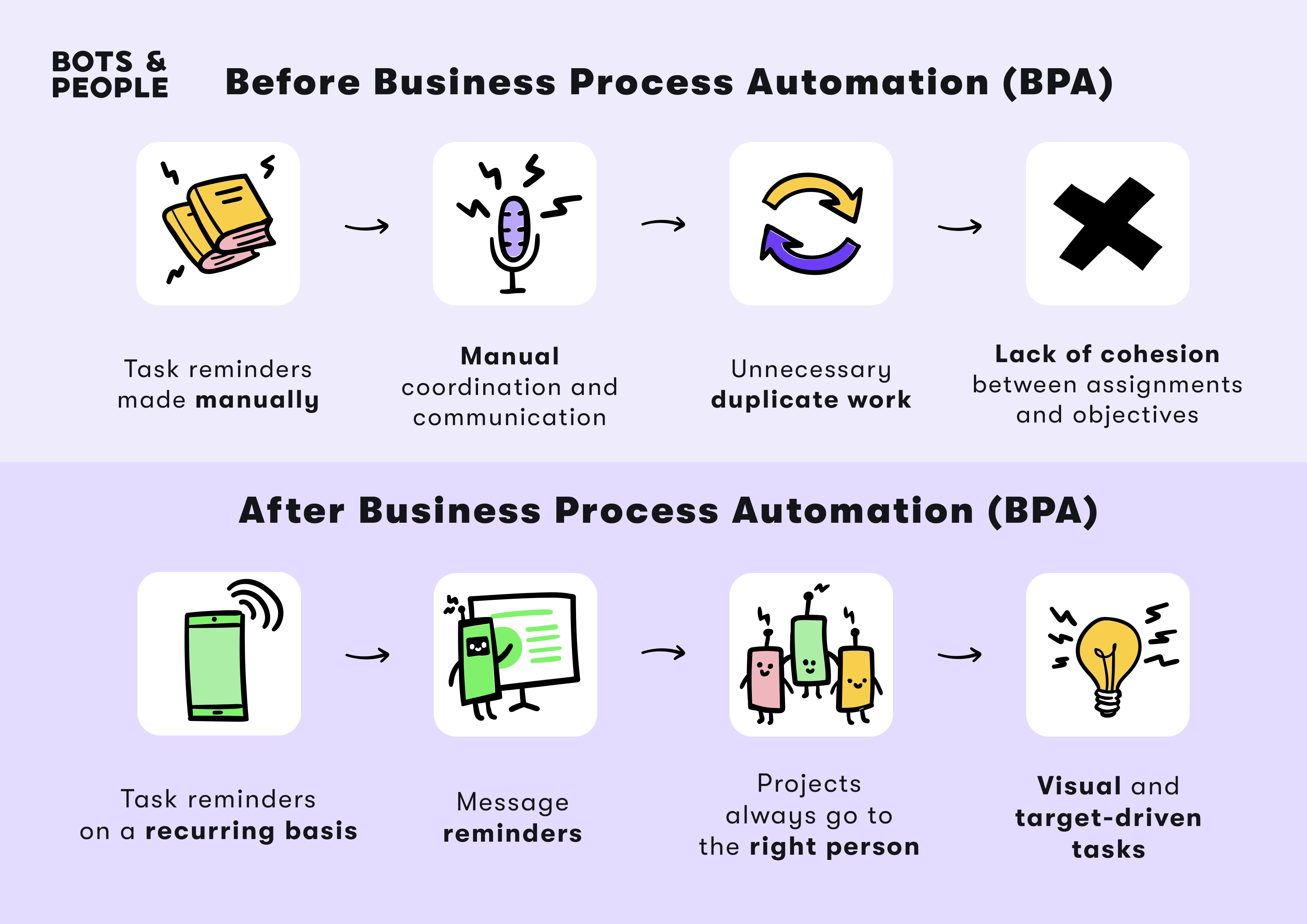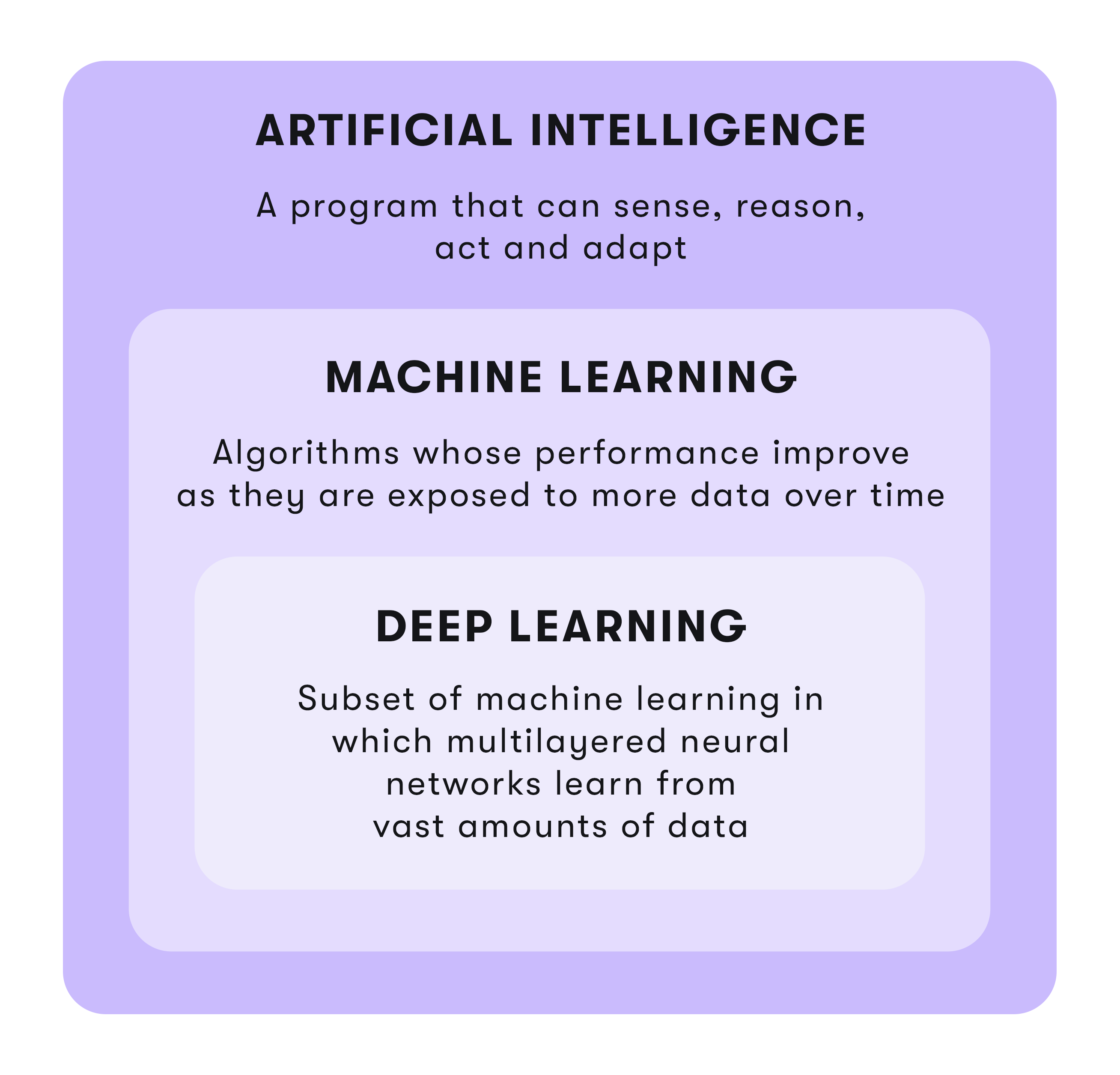The automation of business processes by means of Business Process Automation (BPA) or Robotic Process Automation (RPA) is no longer a luxury for larger companies. In the future, it will become an indispensable prerequisite for business success for every company. Lack of technical and analytical expertise among employees required to understand complex digital process automation solutions and the necessary tools such as process mining and cloud automation could prove to be one of the biggest career killers. Continuing education thus plays an all-important role for anyone who wants to maintain a career in the future.
BPA and RPA - one man's joy, another man's challenge
BPA and RPA are helping companies transform the way they work by streamlining their workflows to drive key business initiatives. Business Process Automation, or Robotic Process Automation, refers to technologies that help automate certain repetitive or simple tasks. BPA focuses on the business rather than a single task and automates a workflow across the enterprise.
RPA is the use of software robots to automate individual human activities that are manual, rule-based, and repetitive. Process Mining not only helps identify the processes that can be automated, but also prioritizes them. Automating labor-intensive processes yields many benefits for companies, such as lower costs, higher efficiency, and time savings. For employees, it holds unimagined challenges, the mastery of which will determine their future careers in process automation.

Low code / No Code Platforms as Automation Accelerators
Experts agree that the pace of automation will accelerate in the future as more and more companies create fully automated value chains. In addition, by using low code/no code automation platforms for automation technologies such as BPA and RPA, process mining or cloud automation with iPaaS, companies have their foot on the gas pedal.
According to a 2020 survey by Deloitte, the number of companies that have implemented RPA will increase from 52 percent (2020) to 72 percent by 2022. Market research firm Gartner even predicts that by 2025, 50 percent of companies will have developed orchestration platforms to operationalize artificial intelligence (AI), up from less than 10 percent in 2020.
BPA, RPA, Process Mining - the tip of the technological iceberg
This development will not only have an impact on companies in general, but also on each individual employee, in particular on their career opportunities. Gone are the days when employees could hide behind the same work routine day in and day out for years. Tomorrow's business operations will have nothing to do with yesterday's.
In addition to increasing process effectiveness, Business Process Automation and Robotic Process Automation will generate new positions and lead to a redistribution of resources. BPA, RPA, Process Mining or Cloud Automation are basically only the tip of the iceberg of technological possibilities that will arise from the further development of technologies such as Artificial Intelligence (AI) and Machine Learning (ML).

Career break without automation know-how
In order to continue to make a career in the company in the future, employees must ensure that they have the necessary automation skills of tomorrow. That's because, according to a survey conducted by UiPath in October 2020, 73 percent of managers surveyed would always prefer a candidate with experience using automation and AI tools, given the same qualifications, even if the position didn't require those skills.
For 67 percent of managers surveyed, relevant skills open up more opportunities for career advancement within their organization. And 64 percent said that relevant skills also result in monetary benefits for the employee. In addition, 82 percent of the managers surveyed predict that automation and AI knowledge will become indispensable prerequisites for certain positions in the future.
Firmly in the career saddle with the right automation skills
Employees are therefore well advised to keep an eye on the digital transformation and the changes that accompany it. The rapid growth of process automation means that jobs will be cannibalized, new ones created and others transformed. In addition, the skill requirements to keep up with automation technologies such as BPA, RPA or process mining will change faster than ever before - not to mention the requirements of hybrid automation technologies such as hyperautomation. If you don't want to be thrown out of the saddle as the parforce of automation technology moves through the enterprise, you'd better have the necessary skills.
Poorly equipped for the future
At present, however, many employees feel rather ill-equipped for the rapid digitization of their working environment. They fear that their own digital knowledge and skills will not be sufficient for the future. In fact, many already lack the basic knowledge of the functions of tools such as BPA, RPA or even process mining to be a productive part of digital business. But that is no reason to despair.
Continuing education as a career booster
Qualified Automation Academies such as Bots and People take into account the skills required by the market in their training offerings. They also show employees the personal benefits of acquiring these new skills as part of their continuing education offerings.
Instead of monolithic, one-dimensional training in terms of content, advanced training is offered that is vendor-independent and cross-system and cross-product. Classic classroom training is combined with modern technologies and virtual learning methods to create Blended Learning. The aim is to take a holistic approach to building competencies for automating processes and thus securing careers.
Automation Skill is what companies want
In the working world of tomorrow, automation skills are primarily in demand, not certificates and diplomas. This is because the automation of business processes is not only changing the organization, but also fundamentally changing the way we work. Training in the required automation skills is the best way to advance a long and successful career in the company of tomorrow. Because as automation increases, Automation Skills are at the top of companies' wish lists.









